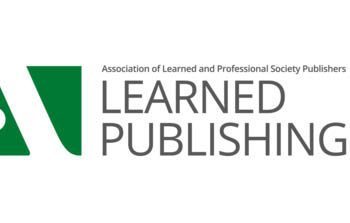Editor’s Note: Today’s post is by Melanie Dolechek. Melanie is is the Executive Director of the Society for Scholarly Publishing.
Last week Society for Scholarly Publishing (SSP) announced a new program that it is piloting, the Communities of Interest Network. The goal of this program is to connect scholarly publishing professionals with others who share interests, concerns, and a goal of advancing their collective understanding or sharing best practices and ideas. Communities of interest will rely on virtual (or occasionally face-to-face) meetings and web-based collaborative environments to communicate, connect, and conduct community discussions and activities.
This new program directly supports SSP’s core value of community and advances our strategic goal of developing new content and services. During the last two years, we’ve realized how important staying connected to our professional colleagues has been. While we’re happy to see in-person events returning, the ability for our membership to connect and collaborate virtually has remained critical as more people work from home in geographically dispersed areas and travel budgets are less generous than they used to be. The peer-to-peer interaction of a community of interest can build trusted connections and lends itself to many knowledge-sharing opportunities.

Communities of interest are not a new concept within associations and can go by many names such as special interest groups or communities of practice. While SSP has been bringing its members together for years at its Annual Meeting and various seminars and more recently through regional events, participation in these events (until recent times and the growth of virtual attendance options) has been limited to those in a specific geographic area or those that have the means and inclination to travel. The communities of interest network will allow professionals around the world to connect with others that have shared interests, challenges, job roles, or other common characteristics regardless of location. So, not just people in publishing, but people in scholarly communications who care about a particular subject.
The vision for the Community of Interest Network is that the Community Engagement Committee with help from the SSP membership will identify types/topics of communities and possible facilitators. Each community will have the autonomy to define their focus areas, size, method/frequency of communication, objectives, and rules for engagement. Each community will be managed by one or more community facilitators and supported by our Community Engagement Committee.
Below are a few examples of possible community types. This list is not meant to be comprehensive and other types of communities may exist or be developed:
- Helping/Role-Based Communities provide a forum for community members to help each other with everyday work needs; focused on a specific job function or subject area.
- Best Practice Communities develop and disseminate best practices, guidelines, and strategies for their members’ use; address a common challenge.
- Innovation Communities create breakthrough ideas, new knowledge, and new practices.
- Identity-Based Communities arranged around race, gender, gender identity, sexual orientation, age, ability, ethnicity, and other demographic characteristics to create meaningful engagement opportunities.
The program is launching with two pilot communities with plans to start convening before the end of July. These two groups are now accepting applications for interested participants. While future communities may be limited to SSP members, these pilot communities are open to anyone within the field of scholarly communications. Participants should be willing to learn from others and contribute so that others learn from them.
The first community, Humanities and Social Sciences (HSS) Publishing Professionals will provide a space for HSS professionals to discuss the issues that face our subset of the sector, compare notes on best practices and policies, and provide networking opportunities. The primary engagement would be through a C3 community, where participants can share their questions and network.
If there is interest, regular online events to network or address particular topics facing HSS publishers would be planned as well. This group will be facilitated by Laura Ansley, Managing Editor at the American Historical Association and Dawn Durante, Editor-in-Chief at the University of Texas Press.
According to Ansley and Durant, it can be hard for HSS scholarly publishing professionals to find a space that speaks to the specific set of challenges they face. Many SSP networks feel more STEM focused, while squarely humanities networks may have limiting or limited resources. This community will be a home for people who are looking for a different constellation of collaborators, and for this reason the group will be open to SSP as well as non-SSP members.
This might be a group for you if, for example, you’ve ever been frustrated by a webinar on open access (OA) that starts from the assumption that most authors have grant money that can be put to use in paying an article processing charge (APC). The HSS group is a space to discuss the reality that scholars might get a few hundred dollars to visit an archive, with nothing to spare for publication. The group will also consider the specific sets of HSS circumstances that contribute to equity issues for readers in under-resourced institutions or parts of the world, and inequality among authors. Because the group is open to non-SSP members we hope it will serve many organizations and roles within the scholarly publishing community, including HSS journals publishers; staff interested in OA but with minimal resources at their home institution; people interested in interrogating the consequences of publications from decades past that may have caused harm to marginalized communities, scholars, and research fields; and anyone who feels like they haven’t quite yet found their community within scholarly publishing.
Those who join will help shape the group from the ground-up. The goal is to provide a vibrant conversation space on the C3 platform, where members can ask questions about pressing topics from diversity, equity, inclusion, and accessibility to OA to permissions and copyright, and other topics not yet anticipated! Occasional casual Zoom meetups will help facilitate networking. Perhaps such conversations will lead to SSP annual meeting sessions and webinars, Scholarly Kitchen posts, or other ways to connect broadly with the SSP community and share the unique joys and challenges of HSS publishing. If you’d like to connect with the group’s co-facilitators, you can find them on Twitter at @lmansley and @dawnd.
The second community, Early Career Publishing Professionals will provide a devoted space for individuals new to the publishing field to network, connect, learn, and grow. During monthly virtual meetups amongst participants for general networking or focused educational topics, group facilitators will encourage questions/engagement and provide attendees an opportunity to chat. This group will be facilitated by Gabrielle Bethancourt-Hughes, Assistant Editor-Digital Product Management, Wiley and Hans Koelsch, Director, Publishing, American Academy of Orthopaedic Surgeons. Bethancourt-Hughes and Koelsch are both members of the SSP Early Career Sub-committee and this group is an extension of the sub-committee’s charge.
Bethancourt-Hughes and Koelsch, along with the Early Career Subcommittee members, hope to cultivate a productive, supportive, and engaged community for professionals new to the scholarly publishing field who are looking to connect and further their skills and experience with the wisdom of others.
If you’d like to participate in either of these communities, please complete the online application by July 18. We’re looking forward to sharing the progress of the pilot in the upcoming months and adding new communities as we refine the program.
If you have a suggestion for a future community, we encourage you to learn more about how new communities will be developed. As this program is in a pilot phase, please note that new community suggestions will not be evaluated until Fall 2022 but we welcome suggestions in the meantime to gauge interest in future topics.



